MCW, together with the Delft-based agency Kiss the Frog, developed and produced 25 interactive exhibits for the educational centre in the King Abdullah City for Atomic and Renewable Energy (KACARE) in Riyadh, Saudi Arabia.
These exhibits provide Saudi Arabian youths with an enjoyable and interactive way to gain insight into all possible forms of sustainability.
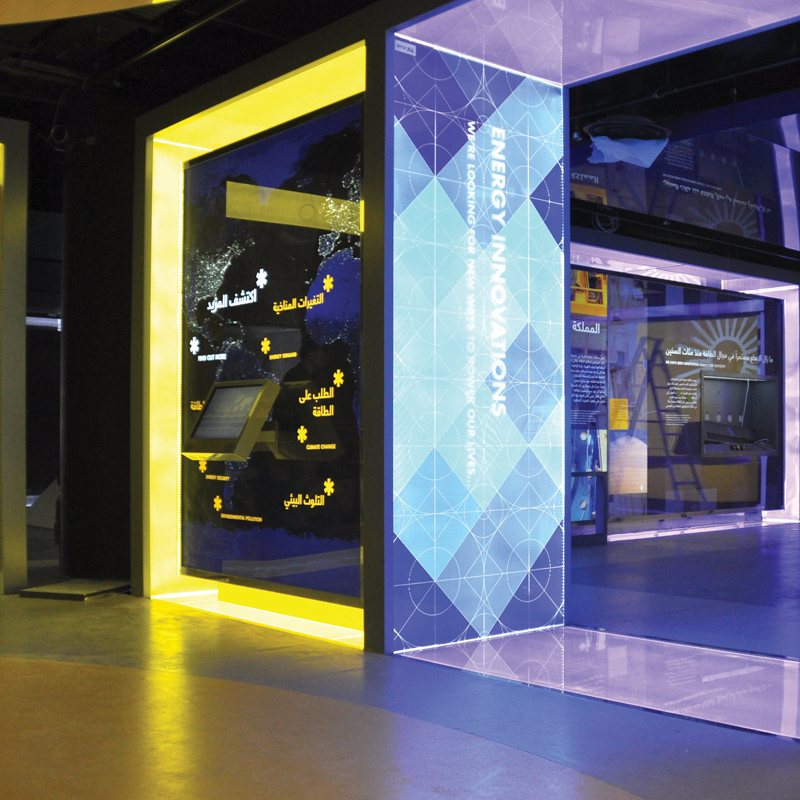
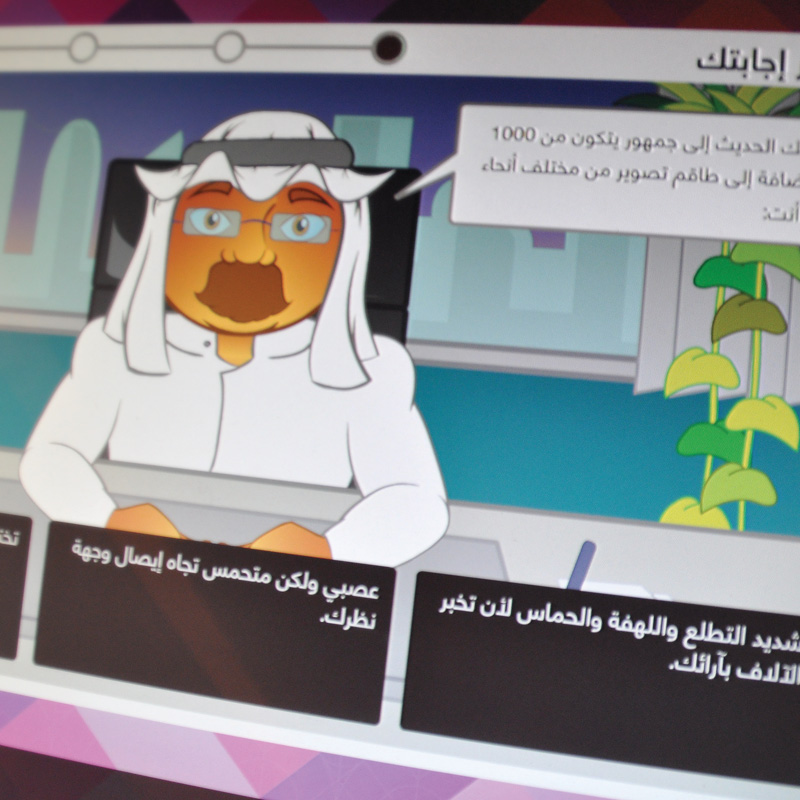
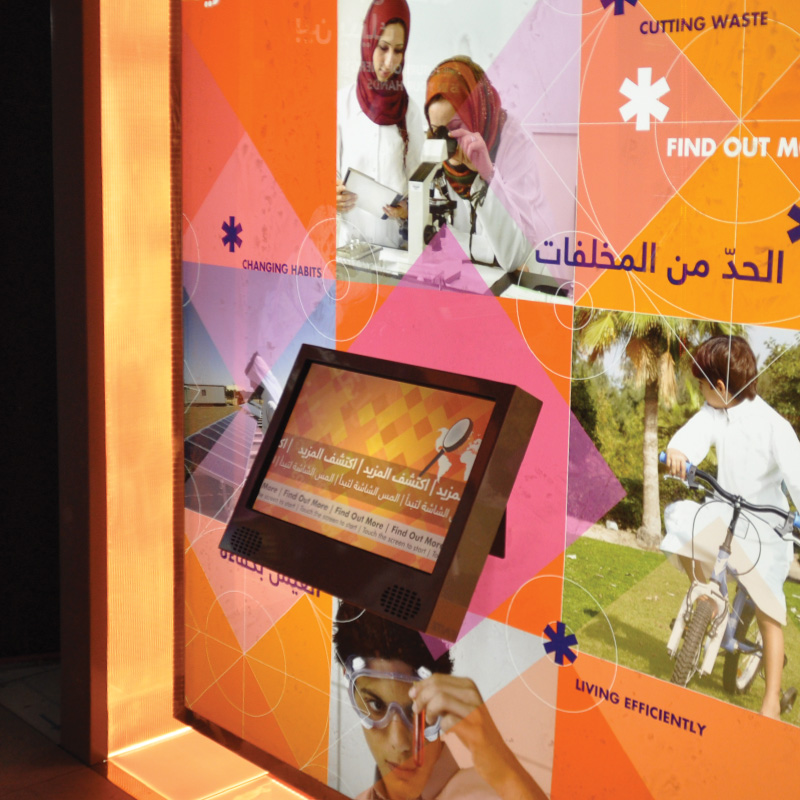
Background
Climate change and sustainability are issues that affect the entire world. For this reason, initiatives such as this one in Saudi Arabia are in progress in order to seek carbon-neutral and sustainable energy solutions. In order to encourage ideas in the field of sustainability, the King Abdullah City for Atomic and Renewable Energy (KACARE) was built in the capital city Riyadh. At this centre, scientists can meet and collaborate towards achieving a bright, strong and sustainable future for Saudi Arabia.
One vital aspect of the KACARE city is an educational centre, where Saudi schoolchildren are taught about sustainability in an appealing and enjoyable way. The centre consists of a wide variety of classrooms and a large exhibition area.
The assignment
Devise and realise a variety of interactive exhibits to teach Saudi youngsters about sustainability in an enjoyable and entertaining manner.
Our approach
To produce the 25 interactive exhibits, a dedicated team closely collaborated for five months. The project involved a number of challenges. Firstly, a general graphic design was developed, compatible with the general concept of the exhibition that had already been developed by a London-based agency. All of the exhibits had to be developed in both English and Arabic, which brought a whole new dimension to the challenge. Subsequently, a graphic design and a storyboard were created for each separate exhibit and discussed in detail with the client. Upon approval, the various disciplines began creating the animations, interactive programs and films to create a unique experience.
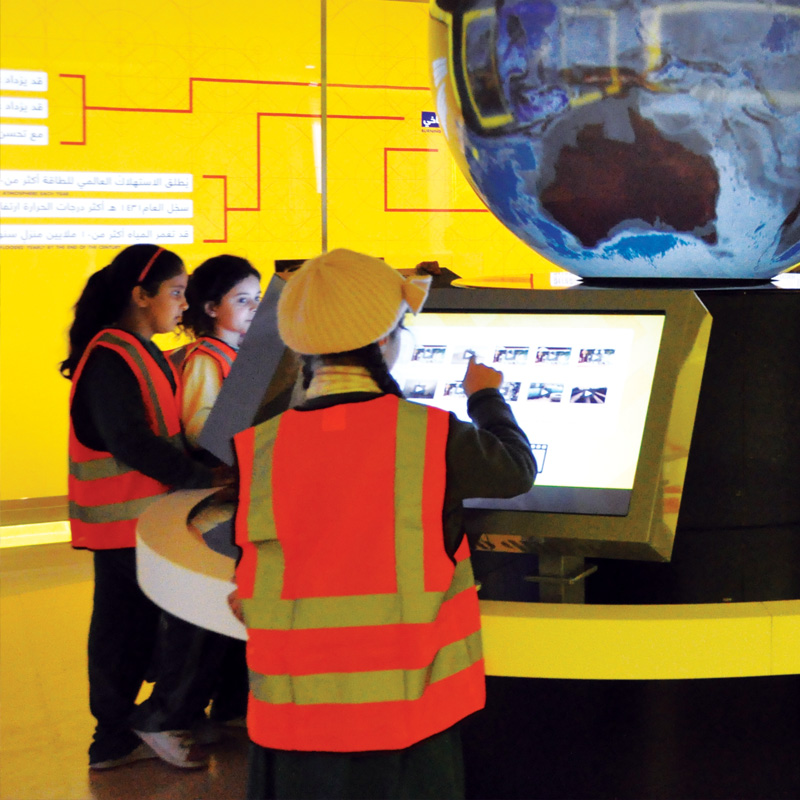
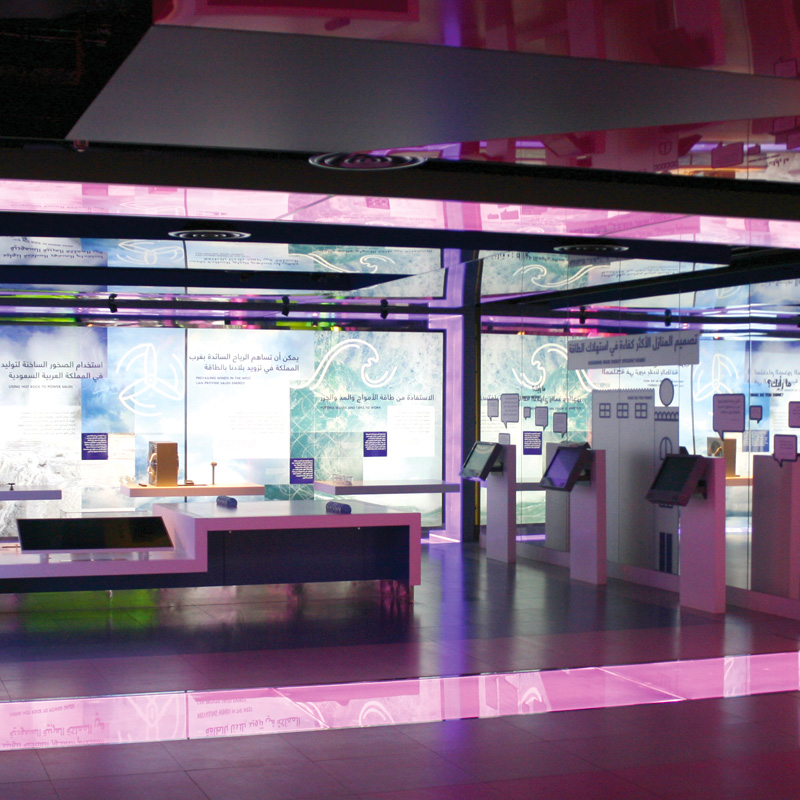

The results
Various themes of sustainability were presented in a variety of different rooms. For example, schoolchildren went on virtual journeys from the plug socket to the power station, they applied for the position of Energy Minister, they played sustainability games with each other and they built eco-friendly houses. The multimedia exhibits also educated them about the consequences that climate change will have on their living environment.
Despite the project’s huge scale and short time frame, the final experience was a truly exhilarating educational experience. And our great pride in this project was only heightened when the Science Centre was shortlisted for the 2013 Museum & Heritage Awards.

